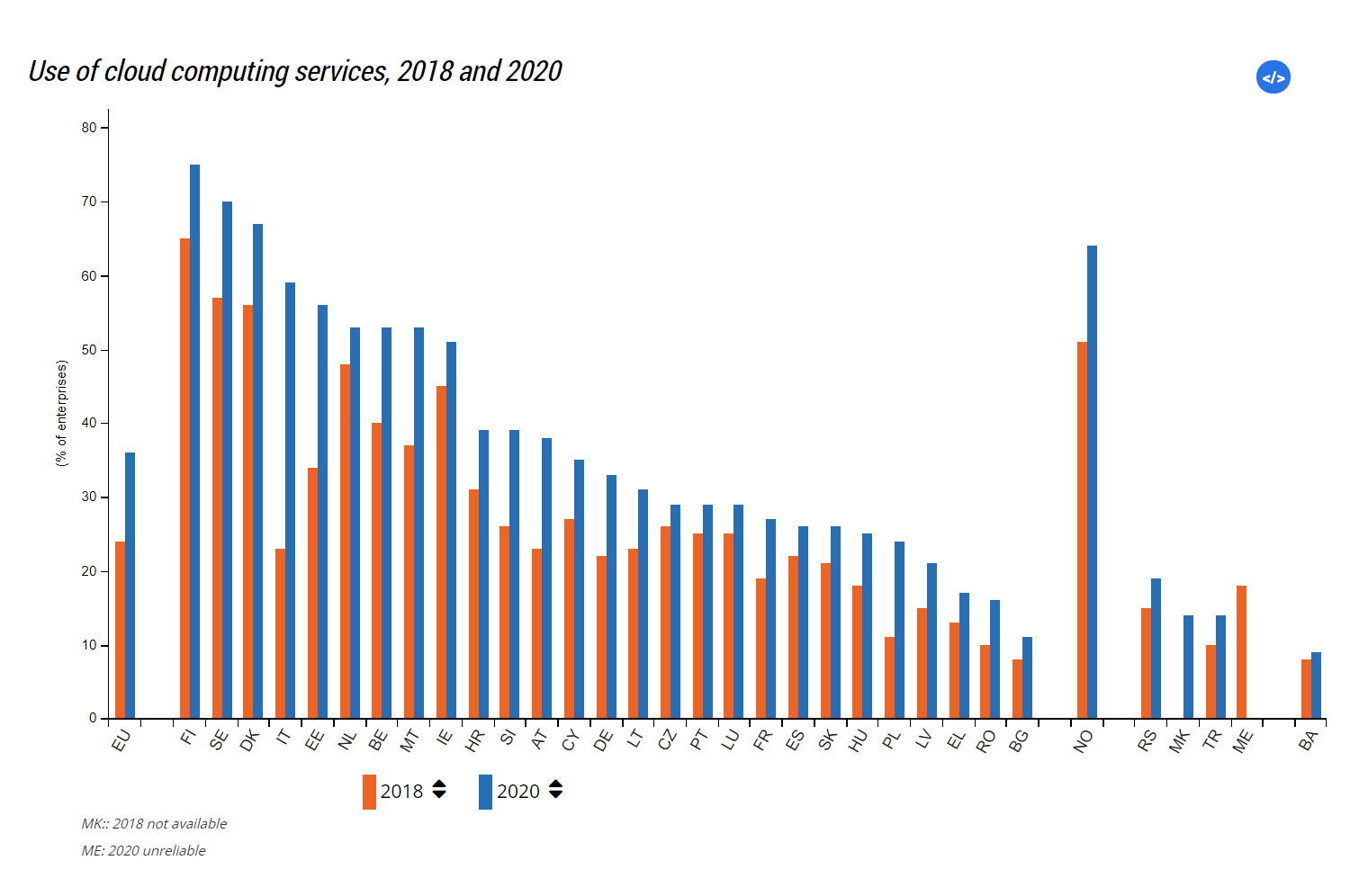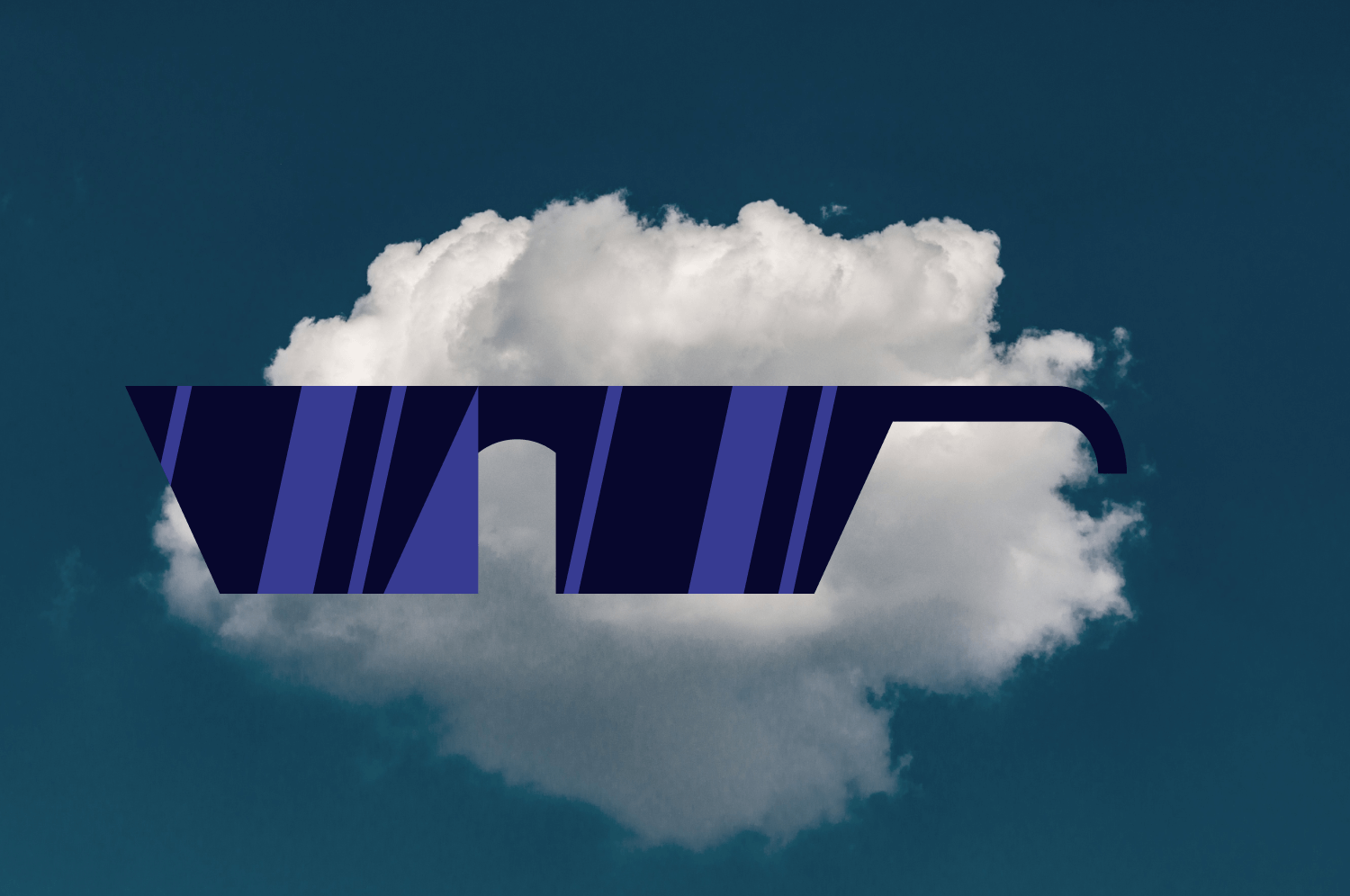The cloud isn’t entirely new. You’ve definitely used Azure, Google Drive, or your company’s custom cloud before. But should you move your whole business to the cloud?
For start-ups, the cloud is usually a no-brainer. They’re not encumbered by legacy infrastructure, the cloud is agile and on-demand, it's a perfect match.
When it comes to companies that have been on the market longer than a decade, the standard used to be on-premise, proprietary servers. Literal rows of metal containers with computers in them.
For companies with the biggest budgets, most demanding needs, or simply huge sunk costs in legacy infrastructure, proprietary server farms are still very much in use. However, in the past few years, we’ve seen what happens when most of the world has to suddenly start working remotely.
Managers were tripping over themselves trying to secure their servers, give their remote workers a safe way to perform their jobs, and maintain the health and security of their IT infrastructure. Difficult times.
Suddenly, the cloud became even more interesting, especially for companies that haven’t transitioned to it yet. As a way to cut costs and streamline operations, the cloud was just the thing for many companies around the world.
 According to Eurostat statistics, between 2018 and 2020, the cloud was adopted by about 10% more companies on average in the many different European countries. Italy’s the biggest outlier, at 40% more enterprises on the cloud compared to 2018, and you might remember why if you watched the news in 2020. Gartner reported that worldwide cloud spending reached $257.5 billion in 2020, and forecasted $304.9 billion in global cloud spending by the end of 2021.
According to Eurostat statistics, between 2018 and 2020, the cloud was adopted by about 10% more companies on average in the many different European countries. Italy’s the biggest outlier, at 40% more enterprises on the cloud compared to 2018, and you might remember why if you watched the news in 2020. Gartner reported that worldwide cloud spending reached $257.5 billion in 2020, and forecasted $304.9 billion in global cloud spending by the end of 2021.
Should you also move your business to the cloud? Hopefully, you’ll have a bit more information to make the right decision after reading this article.
Cloud computing & storage basics ☁️🖥️
First, there’s your computer. You can keep files on it and calculate complex equations (which is basically what all of computing boils down to).
Second, there are physical servers. You can create your own physical server by installing a server-oriented operating system on an old PC (like Ubuntu Server or Windows Server). This is your own mini-cloud.
With your own server:
- you gain access to all of your files wherever you are,
- you keep all of your digital assets in one place and you can access them from any device,
- you have complete ownership and control over your machine and data.
Third, there are proprietary business servers. An old PC won’t do here, business servers need to be built with reliable, fault-proof hardware, and configured in a way that protects your business and ensures smooth operation for all employees, clients, and any other users.
With proprietary business servers, you still have complete ownership and control over your machines and your data. This is your private business cloud.
Finally, there’s the cloud. To understand it, let’s quickly revisit the history of Amazon Web Services. AWS was the first modern cloud infrastructure provider.
The origins of AWS go back to the year 2000, when the internal development team at Amazon was hard at work figuring out how to build new products quicker, and more reliably, than anyone else.
This is how they started building their cloud services, but it wasn’t until 2006 that they came out with products that are currently their most recognizable ones:
- S3 storage cloud,
- EC2 elastic compute cloud.
Suddenly, developers didn’t have to worry about setting up business servers just to build and test an MVP. They could use Amazon, and if their project failed, they didn’t have to deal with selling physical hardware—they could just unsubscribe from their AWS services.
For CFO’s, the cloud is also a lifesaver thanks to:
- much smaller cost compared to setting up, running, and maintaining your own hardware at similar scale,
- computing and storage services that few businesses could afford to build by themselves,
- security and reliability built-in by the top software developers in the world (less risk that things will go wrong).

Different types of the cloud🌦️⛅
When it comes to cloud models for business, there are four main types of cloud deployment depending on:
- how it’s implemented,
- how it’s hosted,
- who has access to your cloud services.
Public cloud
This your standard AWS or Azure service. The cloud resources are shared by all of it’s users, but nobody can ever access your data. You just create an account with the service you like, choose and configure your services, and pay-as-you-go.
It’s versatile, it’s scalable, there are A LOT of different services. However, it’s not the most customizable option. You could compare it to buying clothes from a chain store, compared to going to a tailor (=proprietary server).
Private cloud
You can get a private cloud from public cloud providers, or use a specialized provider. Here, your cloud resources are 100% yours, you can even customize the hardware that runs your cloud.
It’s kind of like building a proprietary server farm, only with a third-party company that takes full care of it for you.
Hybrid cloud
With hybrid cloud, you decide what goes through the public cloud and what you keep on your private cloud. This might the most popular option, because nowadays business operations (especially international) are too complex to rely on only one type of storage and computing. Companies often mix and combine different options to make their infrastructure fit their needs.
Okay, cloud sounds great, right? But then why aren’t all companies moving to the cloud?
Why should you move to the cloud?🤔
Migrating from on-premise servers to the cloud is always difficult, especially if you have invested a lot in your proprietary servers. For start-ups and young companies, it’s usually a much easier process.
If you’re thinking about moving your business to the cloud, here’s what you might gain:
1. Lower overhead costs
It’s possible to spend much less to run your business with cloud computing. Possible—but not guaranteed.
Cost management is a big part of cloud services. One bad configuration can cost you thousands, even millions if your scale is big enough.
So, you don’t have the cost of building, running and maintaining your own physical server, but you have to be very smart about how you use the cloud if you want to really see those cost savings.
2. Cloud platforms are super flexible
You want to change something? Scale up, scale down? Almost all you want is just a few clicks away.
In some aspects, cloud is much more flexible than on-premise. The biggest aspect is scale. If you want to be ready for a surge in traffic with on-premise servers, you need to buy and set up more machines. With a cloud provider, it automatically deploys more server power to handle your incoming traffic.
In e-commerce and other business types where speed is essential and downtime is deadly, this can be a huge profit saver.
3. The cloud is secure and reliable
On-premise servers are only as secure and reliable as your admins can make them.
Cloud servers are built and secured by some of the brightest minds in the world.
You do the math.
(however, cloud services still have mishaps which often make the news, because when clouds down, they usually take down a big chunk of the internet with them)
4. Cloud is built for remote work
Cloud is the go-to for remote work. It can provide security and reliability on any device, in any place that your employees work from. It fosters universal collaboration across your whole organization.
Conclusion
So, do you know if you’ll be moving your business to the cloud anytime soon?
You might not need to move your whole infrastructure. There are many ways to combine cloud services with on-premise tech. As long as you have the resources, it’s pretty much a world of endless opportunities to customize and build the infrastructure that your business deserves.
And remember—the cloud can be a great way to save costs and streamline operations, but only if you know what you’re doing. So if you are moving your business to the cloud, do it with people that have vast cloud experience. You’ll save yourself a lot of trouble.










 Angry Nerds (Poland)
Angry Nerds (Poland) Angry Nerds (USA)
Angry Nerds (USA) Angry Nerds (Canada)
Angry Nerds (Canada)



